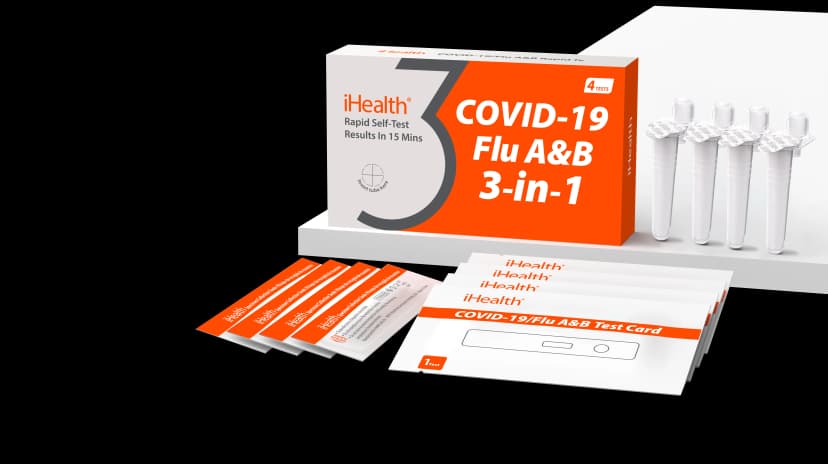Peptides are tiny chains of amino acids that play a big role in our body's functions. They help our cells stay healthy, reduce inflammation, and boost our natural defenses. As we get older, our cells start to wear out, but peptides can help by making proteins that keep our cells working well.
Key Takeaways
- Peptides are made of amino acids and are the building blocks of proteins.
- They help in many body functions, like cell communication and healing.
- Peptides can support healthy aging by promoting cell health and reducing inflammation.
- They are used in anti-aging treatments to boost collagen and growth hormone production.
- Consulting a healthcare professional is important before starting peptide treatments.
The Science Behind Peptides
Understanding Amino Acids and Proteins
Peptides are short chains of amino acids, which are the building blocks of proteins. Amino acids link together in specific sequences to form peptides, which then fold into proteins. This process is essential for many biological functions, including muscle growth and immune response.
Biological Functions of Peptides
Peptides play a variety of roles in the body. They can act as hormones, sending signals between different parts of the body. They also help in the repair and growth of tissues. Some peptides even have antimicrobial properties, helping to fight off infections.
Peptides in Cellular Communication
Peptides are crucial for cellular communication. They can bind to receptors on the surface of cells, triggering specific responses. This makes them important for processes like healing, growth, and even mood regulation.
Peptides serve as a bridge between the microscopic world of molecules and the macroscopic realities of human health. Their ability to target specific cells with precision and stimulate natural bodily processes presents a new frontier in personalized medicine.
Peptides and Their Role in Longevity
Promoting Cellular Health
Peptides can help with longevity by promoting cellular health. As we age, our cells undergo natural wear and tear, leading to a decline in their function. Peptides counteract this process by stimulating the production of proteins that support cellular health and function. This helps maintain the vitality of cells, ensuring they perform their roles effectively.
Reducing Inflammation
Inflammation is a natural response to injury or infection, but chronic inflammation can accelerate aging. Peptides can reduce inflammation by modulating the body's immune response. This helps in minimizing the damage caused by prolonged inflammation, thereby supporting overall health and longevity.
Enhancing Natural Defense Mechanisms
Peptides also play a role in enhancing the body's natural defense mechanisms. They stimulate various biological processes that help in protecting the body from harmful agents. By boosting the immune system, peptides contribute to a longer, healthier life.
Peptides hold promise as a valuable tool in the pursuit of longevity and anti-aging. They work by stimulating various biological processes to combat the signs of aging effectively.
Peptides in Anti-Aging Therapy
Stimulating Protein Production
Peptides are known to boost the body's natural protein production. This is crucial for maintaining skin elasticity and firmness. By encouraging the synthesis of proteins like collagen and elastin, peptides help reduce the appearance of fine lines and wrinkles.
Repair and Rejuvenation
Peptides play a significant role in the repair and rejuvenation of tissues. They aid in the healing process by promoting cell turnover and regeneration. This leads to healthier, more youthful-looking skin.
Collagen and Growth Hormone Release
One of the most notable benefits of peptides is their ability to stimulate collagen production and growth hormone release. Collagen is essential for skin structure, while growth hormones help in overall tissue repair and muscle growth. This dual action makes peptides a powerful tool in anti-aging therapy.
Peptides offer a unique approach to anti-aging by targeting the underlying biological processes that contribute to aging. They provide a more holistic and potentially safer alternative to traditional treatments.
Health Benefits of Peptides
Improving Immune Function
Peptides can boost the immune system, helping the body fight off infections and illnesses more effectively. This can lead to better overall health and a stronger defense against diseases. Some peptides stimulate the production of immune cells, enhancing the body's natural defense mechanisms.
Aiding Muscle Repair
Peptides play a crucial role in muscle repair and growth. They help in the recovery process after exercise or injury by promoting tissue regeneration. This can be particularly beneficial for athletes or individuals recovering from surgery.
Enhancing Growth Hormone Levels
Certain peptides can stimulate the release of growth hormones in the body. This can lead to improved muscle mass, better metabolism, and overall vitality. Enhanced growth hormone levels can also contribute to better sleep and increased energy levels.
Peptides offer a range of health benefits, from boosting the immune system to aiding in muscle repair and enhancing growth hormone levels. These natural compounds can significantly improve overall health and well-being.
Peptides in Skincare
Anti-Aging Properties
Peptides are often celebrated for their anti-aging benefits. They can signal skin cells to produce more collagen and elastin, which helps reduce wrinkles and fine lines. This process not only makes the skin look younger but also improves its texture and elasticity.
Collagen Production
Collagen is a key protein that keeps skin firm and smooth. Peptides can boost collagen production, leading to firmer and more youthful skin. This is why many anti-aging skincare products include peptides as a main ingredient.
Skin Healing and Rejuvenation
Peptides also help in skin healing and rejuvenation. They can repair the skin barrier, protect against environmental damage, and maintain hydration levels. This results in a healthier and more radiant complexion.
Peptides are more than just an anti-aging solution; they also help in soothing the skin and reducing redness. Some peptides even have antimicrobial properties, making them effective in treating acne and other skin conditions.
Potential Side Effects and Safety
Common Side Effects
While peptide therapy is generally safe, some people might experience side effects. These can include:
- Headache, dizziness, and fatigue
- Mild allergic reactions, such as hives, swelling, and breathing issues
- Stomach problems, like nausea, diarrhea, and vomiting
- Heart issues, including palpitations, high blood pressure, and fast heart rate
- Skin reactions at the injection site, such as swelling, redness, or pain
Consulting Healthcare Professionals
Always consult a healthcare professional before starting peptide therapy. This is especially important if you are pregnant, nursing, have a medical condition, or are taking other medications. A doctor can help you understand the risks and benefits, ensuring the treatment is safe for you.
Ensuring High-Quality Treatments
To minimize risks, it's crucial to use high-quality peptides from reputable suppliers. Here are some tips:
- Check for third-party testing to ensure purity and quality.
- Avoid buying peptides from unverified online sources.
- Follow the dosage instructions provided by your healthcare provider.
Peptides are generally safe when used correctly, but it's essential to be cautious and informed about their use.
Research and Future Directions
Current Studies on Peptides
The ongoing research into peptides is expanding our scientific knowledge and laying the groundwork for future applications. Scientists are exploring how peptides can be used to address health challenges, aging, and even technological advancements. Current studies are focusing on peptides like Sermorelin, PT-141, and GHK-Cu, which show promise in various fields.
Potential Therapeutic Uses
Peptides hold potential for more targeted and effective treatments with fewer side effects. They are being studied for their ability to promote healing and regeneration, which could revolutionize treatments for many conditions. Researchers are also looking into how peptides can be used in regenerative medicine and other therapeutic areas.
Future of Peptide Research
As our understanding of peptides deepens, the possibilities seem limitless. Future research will likely explore new peptides and their unique potentials. This could lead to advancements in healthcare, technology, and beyond. The exploration of peptides is pushing the boundaries of scientific innovation, heralding a new era of advancements.
Conclusion
Peptides are small but mighty molecules that play a big role in our health and longevity. They help keep our cells healthy, reduce inflammation, and boost our body's natural defenses. As we get older, our cells can wear out and not work as well, but peptides can help by making proteins that keep our cells in good shape. They are like tiny helpers that tell our body to repair and rejuvenate itself. With ongoing research, we are learning more about how peptides can be used to improve our health and fight aging. Always talk to a healthcare professional before starting any new treatment. Peptides hold great promise for the future of medicine and could be key to living a longer, healthier life.
Frequently Asked Questions
What are peptides?
Peptides are short chains of amino acids, the building blocks of proteins. They play key roles in many biological processes in the body.
How do peptides help with longevity?
Peptides promote cellular health, reduce inflammation, and enhance the body's natural defense mechanisms, helping to counteract the aging process.
Can peptides improve skin health?
Yes, peptides can boost collagen production, support skin healing, and have anti-aging properties, making them popular in skincare.
Are there any side effects of using peptides?
Some common side effects include skin irritation and allergic reactions. It's important to consult a healthcare professional before starting peptide treatments.
How do peptides work in anti-aging therapy?
Peptides signal the body to stimulate natural processes of repair and rejuvenation, including collagen production and growth hormone release.
What should I consider when choosing peptide treatments?
Ensure you consult with a healthcare professional and choose high-quality treatments to ensure safety and effectiveness.
























